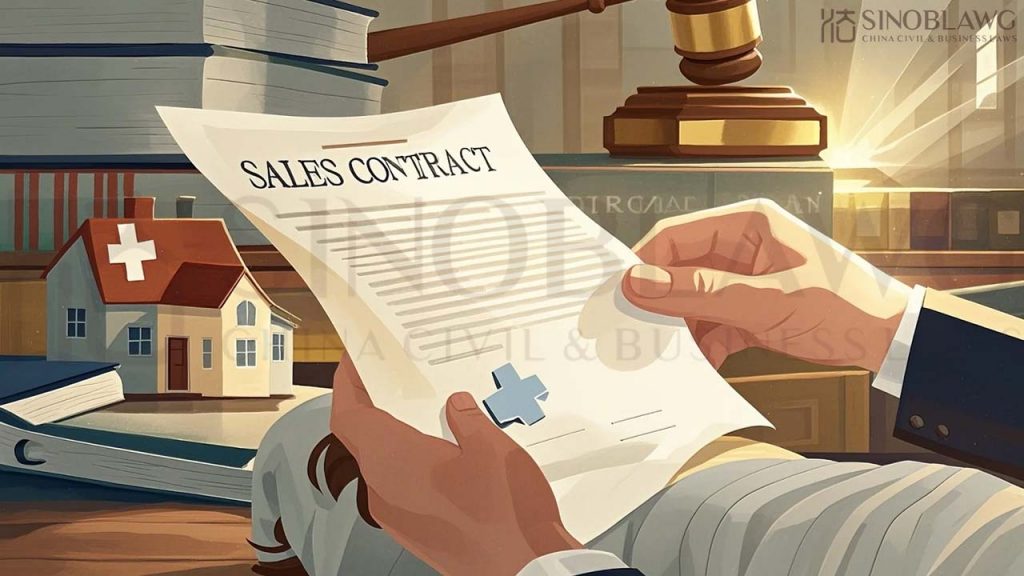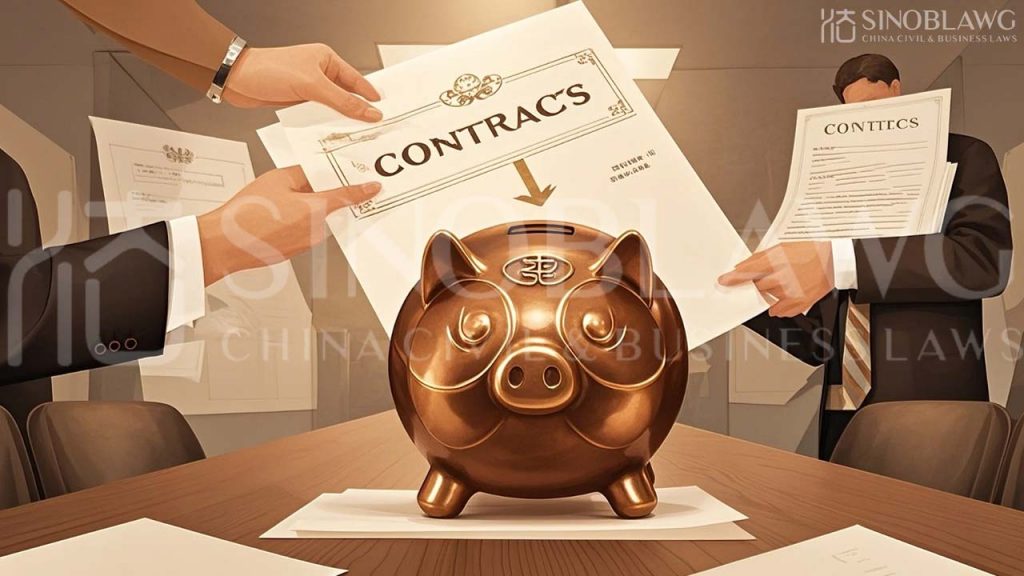Real life can be complicated beyond imagination.
After working in cross-border estate planning for more than a decade, I just came to know a case brought to me by an inquirer which is intriguing to me as it should be the first case of its kind my all my past legal practice. By the way, I just gave some oral advice back then.
I. Facts of the Case
Here are the facts: a foreigner in his seventies signed a sale contract with a buyer for selling his property in Shanghai, and the buyer is Chinese and paid a few million RMB down payment to the seller. Well, not sure whether it was due to the coronavirus – COVID-19, before the parties complete the deal, the seller fell terminally ill and slipped in a coma. The seller had apparently believed he was very well and he can attend to the whole process of property sale on his own, and thus he had no agent or representative to act on his behalf when he was will.
What made things complicated is that the seller has a very complex family as he had several marriages with some kids were even minors at the time of his incapacitation. Oh, he did have a girlfriend at the time of sickness, but just a girlfriend, not legally married, and no wife. One of his adult children called me for advice on what he needed to do to deal with the situation. The buyer had threatened to sue them.
The buyer was bombed with the seller’s health situation, and approached a lawyer for what to do next.
II. Legal Implications of Seller Incapacitation
(1) Breach of Contract?
So this sudden event of incapacitation get the property deal hung in the air now. We need to analyze the bearing or impact of the incapacitation on the contract. Will this terminate the deal? Or nullify the contract? Or entitle the buyer to pursue breach of contract liability against the seller? Or will the seller escape from legal liability as he is apparently in no fault for being sick?
Full legal capacity is the essential condition for a contract formation and effectiveness, but this incapacitation happens after the contract is duly concluded and partially performed. So this is not a factor or legal ground that can directly nullify the contract or otherwise terminate the deal.
But this incapacitating event does hinder or impede the sale, and could potentially render it impossible to consummate the deal. Pls note it is the problem on the part of the seller who brings the performance and execution of the contract to a sudden halt. There is no law exonerating such failure to perform a valid contract. Indeed, China Contract Law has adopted the so called “strict liability” principle in establishing contract breach liability. In other words, China courts won’t look much into the subjective state of the party that fails to perform the contract as stipulated therein.
In that sense, the seller, though already miserable for his own illness, is now getting legal trouble as well as he has breached the contract. Very unfortunate, but this is law and part of our life.
(2) Serious Liability?
However, having established that there is a breach on the part of the unfortunate seller, what will be the liability on him?
Although theoretically, most people agree on the strict liability doctrine under China Contract Law as the law does not require a subjective fault to find a breach of contract. This doesn’t mean that the China courts will blindly impose default liabilities on all parties that are found to be in breach of a contract. Very often, as required by specific provisions of China Contract Law, the courts shall look into the subjective state of fault of the breaching party when assessing and imposing breach liabilities. For example, China Supreme Court requires China courts to consider the degree/level of fault on the breaching part when it adjusts the amount of liquidated damages as agreed by the parties in the contract (a probably unique rule in China Contract Law).
So I believe the court before the case will surely impose very little penalty on the seller if not nil. After all, the judge may well be ready to cite other laws such as principle of fairness or good morals to relieve the harshness brought about by the strict liability under contract law.
III. What Shall the Parties Do Then?
(1) For the Seller
Well, there is nothing he can do in a coma, but it is his close family members who will need to act. Practically speaking, the seller has nothing to lose here, as he has his property still in his name, and the property is still possessed by himself. What’s more, he has received a big sum of cash in his bank account.
Even though, as demanded by the principle of good faith, his family members should not prolong the plight by doing nothing. Instead, they should go to competent court to apply for appointing a guardian for the incapacitated seller so someone has legal standing to deal with his affairs and estates. Once a guardian is appointed, then he or she could represent the unconscious and move things forward.
(2) For the Buyer
The buyer must have cried throughout nights and nights. He is really stuck in a despair situation.
The buyer may wish to proceed with the deal as he has paid a big amount of down payment. But how? The only way to move forward while the seller is in a coma is to work with the seller’s guardian. Unfortunately, the seller is foreigner and it takes almost half a year to go through the court proceeding to appoint a guardian for him. Will the buyer wait that long? Probably not.
So how about terminating the deal and go away to buy other property? Sounds good. Again how? The contract is signed and valid as discussed before. How should he back out of a valid contract? Yes, he can just throw the contract into a trash bin, then how will he take his down payment money back? The money is sitting in seller’s account and no one else is supposed to take the money out except for his duly appointed guardian. See, again it requires the guardianship to be installed.
Well, how about suing the seller with court and request the court to order the bank to transfer money to buyer?
While it is true that courts have the power to order the bank to release money to the buyer, the buyer may find himself again in a dead end (at least extremely difficult). The seller is not in China, and most likely the buyer didn’t even know where the seller lives. Even if he files the case with the court where the property is located, then how will the court serve legal documents on the defendant seller? All right, the buyer is smart enough to gain the seller’s foreign residence address, then the service of legal documents on the seller may have to go through diplomatic channel, and again this will take more than 6 months in practice .
The inquirer even showed me the complaint prepared by the buyer threatening to proceed with the sale and claim damages for delay. Well, this is probably not the best way to go about the case by claiming specific performance of the contract. Amid the current coronavirus epidemic, property prices are likely to drop a bit, and he won’t record any loss by exiting the deal and buy a new property
III. Lessons Learned
Well, as a lawyer, we learn lessons from all cases we come to know, and thus get more prepared to better advise future clients in similar deals.
(1) Appoint an Agent with Power of Attorney
My team have helped foreign clients in selling their properties in China and help with repatriating sale proceeds out of China. In all such deals, we ask clients to issue a well prepared power of attorney in which we are appointed as agents to act on behalf of clients with specific powers to deal with the such sales in China.
In the case discussed here, if the senior seller has issued a power of attorney for the property sale, then his agent may still process the deal on his behalf till the very end despite that he is now incapacitated. China law has made it clear that so long as the power of attorney provides that the POA will only expire upon completion of the matter therein, then the agent can proceed with the matter despite the death of the principal, not to mention incapacitation.
(2) Use Escrow Services
Properties sale in China are different from those in other countries. In practice, esp in Shanghai, most deals are conducted without using escrow services. Buyers will directly pay money to the sellers’ accounts except for mortgage loan proceeds that are paid by the bank to the seller.
If possible, escrow services can relieve the pain of the buyer in this case. If the escrow service agreement makes it clear that the fund shall be returned to buyer if the seller for any reason cannot consummate the deal, then he may not have to bother much to go to court. Just terminate the deal and take back his money and buy another property.
(3) Contract Drafting
Well, it is always advisable that in any business contract, the parties should stipulate court jurisdiction over possible dispute arising out of it, and stipulate a notification clause under which each party shall provide valid address for receiving written notices from the other party and for purpose of receiving court documents. This will save you a lot of trouble when serious legal action needs to be taken.








Comments